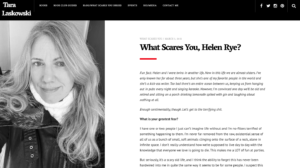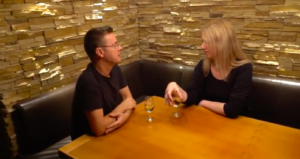“Your prompts and feedback always unlock something unexpected for me. I absolutely love writing in your workshops.”
stories editing workshops
I write, edit, and teach flash fiction. I am Senior Editor for Workshops and Outreach at the international flash fiction journal SmokeLong Quarterly. I have an MA in Prose Fiction (Distinction) from UEA, where I was awarded the Annabel Abbs Scholarship. My stories have won/placed in the top 3 of The Bath Flash Fiction Award, the Reflex Fiction Prize, The Best Small Fictions, The Bristol Short Story Prize, The Manchester Writing School QMD Prize, been shortlisted elsewhere, and been published in various journals and anthologies around the world. I judged the Cambridge Flash Fiction Prize in 2018 and am a reader for other international flash fiction competitions. I am a brand new PhD researcher in creative/critical writing at UEA (part time). I offer flash fiction critiques, mentoring, and occasional workshops through SmokeLong.

interviews

interview with tara laskowski
“Vampires are sexy and cool. How is this a contest? Always choose vampires!”

video interview with christopher allen
Christopher and I work together at SmokeLong Quarterly. He’s my best friend. We are ridiculous. This video interview for SmokeLong from 2019 is evidence of that.

interview for 100 voices for 100 years
An interview about writing the flash fiction story One in Twenty-Three
special note for
lower secondary english homework
on one in twenty-three
Here because you were given homework on the story One in Twenty-Three?
You might find some answers on this page, but here are some quick links:
One in Twenty-Three Bath Flash Fiction Award Autumn 2016
Nguyễn Phan Quế Mai on One in Twenty-Three
that no one puts their children in a boat
unless the water is safer than the land.

